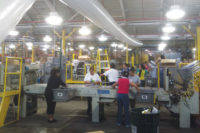Many people who come knocking on these doors, however, have misconceptions about the job. Consulting firms do offer advantages over striking out on your own. Established firms offer training, tools, and resources that will augment your skills. You can be exposed to new and interesting projects. You can also benefit from long-standing relationships with clients that you would otherwise have to develop for yourself. Working for a firm also assures you of a steady income with less risk than you would face if flying solo.
Unfortunately, many professionals who leave industry to reap these rewards fail to recognize what it takes to succeed in today’s marketplace.
A consulting firm is a business seeking to earn a profit. Many newcomers to consulting have the false impression that project work is abundant. Consulting services, like nearly all forms of professional services, are increasingly competitive and require substantial investments in marketing and promotion. Expertise is not enough; you have to sell yourself.
Success in consulting is 10 percent expertise and 90 percent marketing. Eminent consultants are adept at convincing clients of the need for their services. Convincing clients doesn’t mean deceiving them; successful consultants rely heavily on repeat business and referrals from satisfied clients. A successful marketer of consulting services demonstrates the ability to evaluate problems, helps clients understand them, and provides effective solutions. This requires superior communication skills as much as technical know-how.
Many people mistakenly assume that education and experience determine a consultant’s value. In reality, when you present yourself to a consulting firm as a candidate for employment, your profit-generating potential will be evaluated. Your selling skills, "marketability," client contacts, and any initial project assignments will be considered. Your adaptability to new approaches or industries, or any special licenses or designations you have earned will strengthen your candidacy.
Earning power: Here’s another reality: You must help pay for the very same expenses you’d be faced with as an independent consultant. As a rule of thumb, a consultant needs to earn revenues 2-3 times his or her annual salary, which can amount to $100,000-300,000 per year in revenues. This means you must be able to charge clients for at least 70 percent of your time, which is roughly 1,400 hours per year. Your remaining time is spent in business development, internal R&D, administrative work, and self-improvement. The revenue you bring in has to help cover this "non-chargeable time." It also helps support the firm’s overhead, including office staff, rent, furniture and equipment.
Although consulting firms enjoy an established client base, you will be expected to nurture client relationships of your own and add to the firm’s overall backlog of work. Junior-level hires are often assigned to work on teams with other consultants and are usually kept busy working for their mentors. Consultants in more senior positions are expected to keep themselves "billable" and perhaps secure enough work to support a team. Even if you are a foremost expert in some field, if you aren’t developing business, someone has to do it for you.
What passes for marketing in a consulting firm has changed. Using passive means of business development -speaking at conferences and writing technical papers- isn’t sufficient anymore. You should be comfortable making sales calls to prospective customers and networking your contacts to find new leads. If the firm has a respected name, the people that you call will be receptive to your ideas. One way to prepare for this is by compiling a list of your contacts and developing an honest appraisal of the business potential. This helps you evaluate whether you can live up to the firm’s initial expectations of you.
Keeping pace: Once you join a firm, continue to challenge yourself. The pace of change in safety and environmental management is rapid. The most successful consultants are always studying and learning new approaches to better serve their clients.
Working for a leading consulting firm can be demanding. You can expect to travel extensively and work 50-60 hours per week on average. Nevertheless, consultants enjoy a diversity of work assignments and a chance to make substantial personal contributions to important client projects. Those who thrive on challenge, problem-solving, and working with people often find consulting firms a gratifying career choice.

